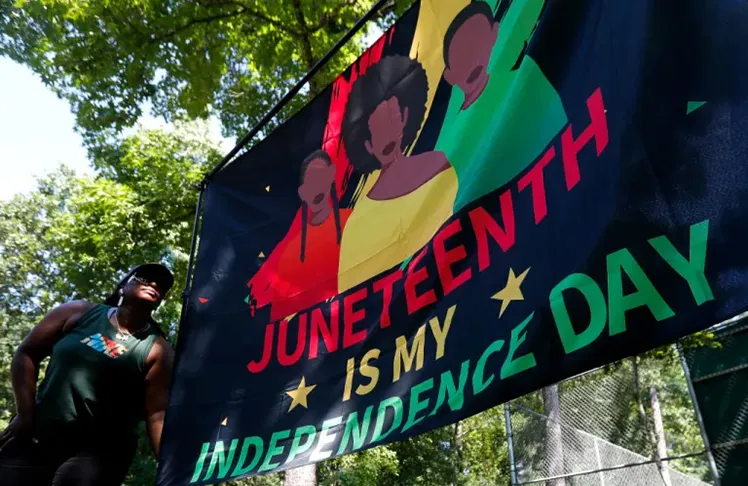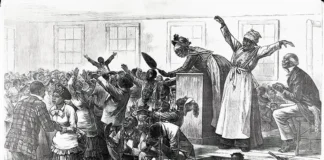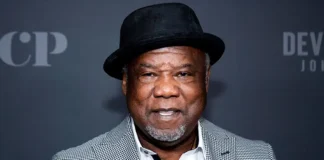
by Mustafa Ali
There is a myth we tell ourselves about Juneteenth, as if freedom arrived suddenly, like a thunderclap, on June 19, 1865, with General Granger reading General Order No. 3 to the enslaved people in Galveston, Texas. The story goes that they didn’t know. That Freedom’s song took two and a half years to travel from Abraham Lincoln’s pen to the cotton fields. That somehow, the Emancipation Proclamation was stuck in a bottle drifting along the Gulf.
It’s a neat narrative, tidy enough for textbooks, convenient enough for comfort. But it’s not the whole truth. And if Juneteenth means anything, it means telling the truth, especially the ones that make us squirm.
Enslaved people knew. They heard whispers in the wind, news carried by travelers, by freedmen passing through, by Union soldiers marching closer. They knew something had shifted in the air. What they didn’t have was power. What they didn’t have was enforcement. Because even as the Union claimed victory, the machinery of slavery churned on in Texas. Owners refused to release what they considered “property.” The Confederate economy didn’t collapse in a single day — it bled out slowly, clinging to its last gasps of labor extracted through the whip.
Freedom unbacked by force is just a rumor. And rumor doesn’t change chains.
The lie will always be in delay.
We act like the 19th century was a vacuum of information. But newspapers existed. Telegraph lines snaked across the continent. This wasn’t about distance — it was about defiance. About a system so steeped in its own supremacy that it denied reality even as it unraveled. We see this now, too — in climate denial, in voter suppression, in the constant rewriting of history in state legislatures. The lie will always be in delay. Continually acting as if truth needs time to arrive when the delay is the cover for injustice continuing its work.
Juneteenth, then, isn’t about the moment the enslaved discovered their freedom. It’s about the moment America could no longer deny it. It’s about what happens when a people hold the truth in their bones even while their backs are breaking. It’s a reminder that history doesn’t just move forward — it resists, gets pulled back, gets twisted to serve the powerful.
And still, Black folks made space for joy.
Juneteenth was never theirs to give — it was ours to keep.
Before there were government-sanctioned holidays, before presidents recognized the date, we celebrated. We gathered in church halls and living rooms, on porches and playgrounds. We sang spirituals soaked in sorrow and survival. We told stories about ancestors who never got to taste the freedom they fought for. We named our babies with hope in their mouths. Juneteenth was never theirs to give — it was ours to keep.
Which is why it’s laughable, or maybe just pathetic, to hear a man like Donald Trump claim that he “made Juneteenth very famous.” As if he stumbled upon Black memory and turned it into a campaign stop. As if acknowledging something suddenly makes it real. He didn’t discover it. He didn’t understand it. And he certainly didn’t elevate it. Juneteenth has been alive far longer than he’s been paying attention — passed hand-to-hand like sacred scripture, guarded fiercely against the constant threat of erasure.
In this climate, Juneteenth isn’t just a commemoration. It’s an act of resistance.
This matters now more than ever, in 2025, when entire curriculums are being gutted, when states are banning books that breathe truth, when classrooms are policed for daring to say the word “racism” without apology. We are living in an era where propaganda isn’t just tolerated, it’s policy. Where the erasure isn’t accidental, it’s designed. And in this climate, Juneteenth isn’t just a commemoration. It’s an act of resistance.
Because Juneteenth says: We remember. Even when they try to make us forget.
It says: We don’t need your permission to grieve, to celebrate, to survive.
It says: Truth may be delayed, but it can’t be denied forever.
So yes, enjoy the parades and the concerts. Pass the ribs, pour the sweet tea, hold your loved ones tight. But also sit in the stillness of what Juneteenth really is — a reckoning. Not just with slavery, but with all the systems that followed. With redlining and mass incarceration. With poisoned water and underfunded schools. With police who carry more power than a general’s decree ever did. With a nation that declared freedom on paper and then fought like hell to keep it from becoming real.
Juneteenth is not a Hallmark moment. It’s a mirror. It reflects our progress and our failures. It challenges us to ask not just what we celebrate but what we’re willing to fight for. And who we’re eager to listen to when they say, “We’ve always known. You just didn’t believe us.”
In that way, Juneteenth is not simply about the past. It’s about now. And whether we choose to keep waiting for someone else to read our freedom out loud — or whether we speak it ourselves and enforce it, for real, this time.
Because freedom delayed is still a form of slavery.
And truth buried is still alive, still waiting.
Still rising.
Dr. Mustafa Ali is a poet, thought leader, strategist, policymaker, and activist committed to justice and equity. He is the founder of The Revitalization Strategies, a business focused on moving our most vulnerable communities from “surviving to thriving.” Ali was previously the senior vice president for the Hip Hop Caucus, a national nonprofit and non-partisan organization that connects the hip-hop community to the civic process to build power and create positive change.















